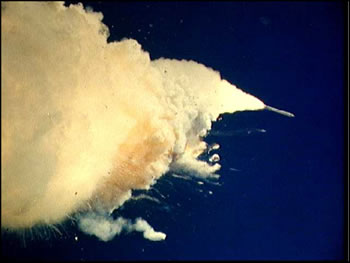Normalization of Deviance – The Pathway to Disaster

On February 1, 2003 the Space Shuttle Columbia, while entering the earth’s atmosphere at 10,000 miles per hour, disintegrated killing all 7 astronauts. A $4 billion spacecraft was destroyed, spreading debris over 2000 square miles and grounding the Space Shuttle program for 2-1/2 years. The cause, normalization of deviance. Insulating foam strikes which had been unacceptable were tolerated and ignored. The NASA specification stated “No debris will emanate from the critical zone of the external tank on the launch pad or during ascent.” However, after 113 shuttle missions, foam shedding, debris impacts and TPS tile damage came to be regarded as only a routine maintenance concern. Each successful mission reinforced the belief that foam shedding was unavoidable and unlikely to jeopardize safety.
 On January 28, 1986 the Space Shuttle Challenger exploded killing all astronauts on board and destroying the spacecraft. The cause, normalization of deviance. Increasing problems with o-ring damage were ignored due to a backup o-ring system and acceptance of o-ring damage as “normal.” An attitude of “nothing bad happened yet” existed at high levels in the organization. Despite concerns from technical personnel, schedule pressures and lack of a sense of vulnerability prevailed.
On January 28, 1986 the Space Shuttle Challenger exploded killing all astronauts on board and destroying the spacecraft. The cause, normalization of deviance. Increasing problems with o-ring damage were ignored due to a backup o-ring system and acceptance of o-ring damage as “normal.” An attitude of “nothing bad happened yet” existed at high levels in the organization. Despite concerns from technical personnel, schedule pressures and lack of a sense of vulnerability prevailed.
What is “Normalization of Deviance?” Simply stated, it is acceptance of what was once unacceptable as acceptable since we “got away with it” over time. Examples could include driving to work without a seat belt, driving while intoxicated or riding a motorcycle without a helmet. In our industry this could be cutting corners on life critical procedures or deviating from proven standards. We do it once and again and eventually accept this as the new standard of behavior. In other words, we convince ourselves it is acceptable to go without a seat belt or drive under the influence. This moves us to a high-risk state and eventually the consequences will be severe as in the case of both Space Shuttles.
Investigations of the Shuttle accidents revealed cultural issues at NASA that drove this behavior. These included:
- Past success with programs like Apollo created a can-do attitude that minimized consideration of failure
- Near misses were regarded as performance of a robust system rather than near disasters
- A weak sense of vulnerability led to taking future success for granted and accepting more risk
- Extreme pressure to maintain launch schedules permeated the culture
- An attitude that engineers had to prove it was unsafe and rank trumped expertise
- When there were conflicting priorities production won over safety
Normalization of deviance has caused numerous serious accidents in the hydrocarbon processing industry. Examples include elements of the Piper Alpha oil platform disaster that killed 167 people and the Flixborough disaster that killed 28. In the case of Flixborough, the impact went well beyond the plant fence line. About 1800 homes and 170 business were damaged and there were hundreds of off-site injuries. These accidents resulted from deterioration of following procedures, unqualified staff and production pressures.
It’s critical that we learn from these past disasters and fight normalization of deviance in our personal and professional lives. Becht Engineering can support evaluation of your plant and procedures to assure the right culture is in place. We have over 1300 professionals with extensive experience in the refining, petrochemical and nuclear industries.
We want to acknowledge the Center for Chemical Process Safety for input to this blog through the presentation “Lessons from the Columbia Disaster” presented at the Lyondell 2006 World Wide Reliability Forum.
Have a question or would like more information?




